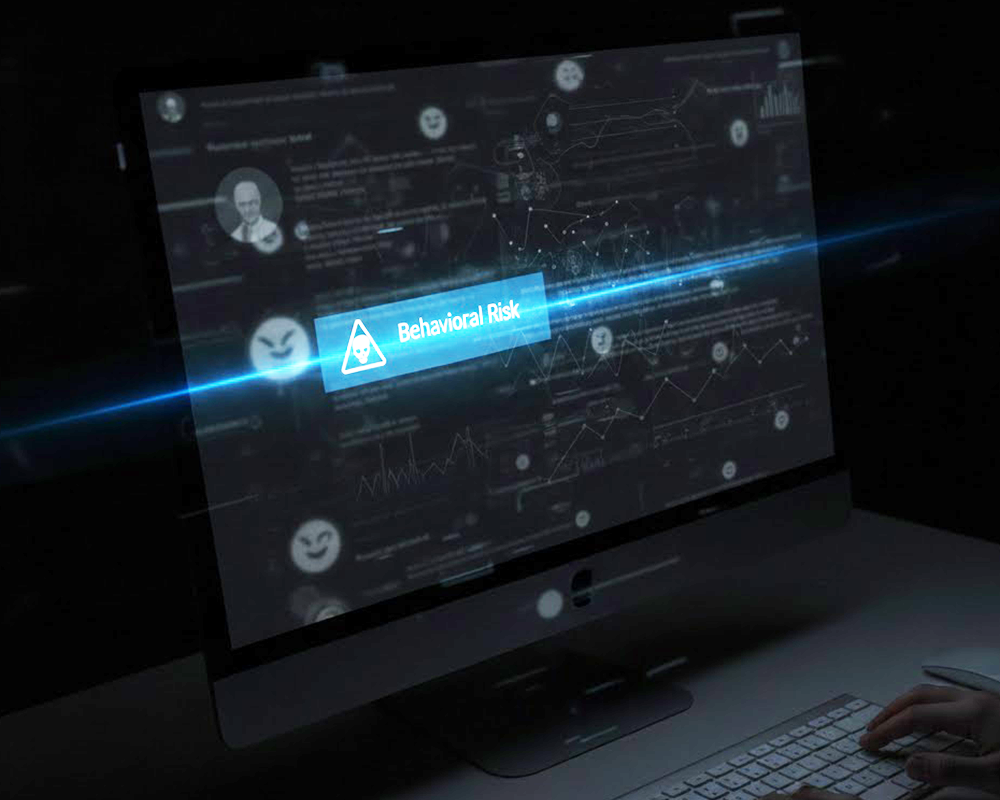When it comes to background screening, New York State presents a unique challenge that has left many employers choosing between comprehensive coverage and budget constraints. As one industry expert recently noted, "Congratulations, New York. You still are, I believe, the most expensive state to do background screening in."
During a recent industry webinar titled "Master the Art of NYS Criminal Screening: What Most HR Teams Miss," background screening experts revealed a troubling reality: New York State presents employers with an impossible choice.
But the real issue isn't just cost - it's the dangerous gaps that traditional screening approaches leave in one of the nation's most complex court systems. The webinar, hosted by CIChecked's team of New York screening specialists, pulled back the curtain on why standard background check approaches that work in other states can leave New York employers dangerously exposed.
The OCA Dilemma: Comprehensive but Costly
The New York State Office of Court Administration (NYS OCA) has long been considered the "gold standard" for criminal searches in the state. Established around 2002-2004, the OCA pulls together data from across New York's 62 counties into a single statewide system.
However, this comprehensiveness comes at a steep price. "At $95 per name run through the Office of Court Administration, that adds up in a hurry," explains Michelle Pyan, President of CIChecked and a 30+ year veteran of the background screening industry. "And we say 'per name.' When you're running a search in the New York State Office of Court Administration, you have to enter the exact first name, the exact last name, and the exact date of birth to get the exact results that match exactly to that search."
This lack of "fuzzy logic" means that name variations—Mike versus Michael, or slight spelling differences—require separate $95 searches. For organizations conducting hundreds of background checks annually, these costs can quickly spiral into budget-breaking territory.
The OCA also has other limitations that concern employers. A few years ago, they implemented a "misdemeanor redemption policy" that doesn't report certain older convictions. The OCA also doesn't provide vehicular misdemeanors unless they're DUI/DWI related. "I believe it's like leaving the scene of an accident or causing bodily injury due to an accident, which are vehicular misdemeanors that wouldn't be reported," Pyan notes. "As a person who also hires, you know, I'm concerned about that kind of judgment and integrity when you leave the scene of an accident, especially when you've injured somebody.
The County Court Gamble: Why "Standard" Approaches Fall Short
Faced with OCA costs, many employers default to county-level criminal searches—the industry standard in most states. But New York's fragmented court system makes this approach particularly risky.
"In Wisconsin, that totally works; we have that online, centralized court system. In Minnesota, it totally works. Many other states that approach works," explains Tom Hunter, an Account Executive with 17 years in the industry. "I feel as though background screeners, from what I've seen, they take that approach and they shoehorn it into New York, where, again, depending on how you're approaching county courts, you may be missing some pretty critical misdemeanor convictions."
The problem lies in New York's court structure. While felonies are handled at the county level, misdemeanors are processed at local, town, and village courts, and these don't report up to the county system. This creates a significant blind spot for employers relying solely on county searches.
Hunter shares a telling example: "We work with an organization who came to us. Their long-standing vendor was running county court research. It came to their attention that some pretty critical misdemeanors were missed on a background check. They were with this provider, I think, for seven years, 10 years, never ran an audit of their program, and now we have a red flag—a missed misdemeanor, and something that absolutely had to be caught before that individual made it past the background check."
The types of missed convictions aren't minor infractions. CIChecked's analysis has uncovered cases in city and town courts involving:
- Forcible touching
- Criminal possession of a weapon
- Endangering the welfare of a child
- Assault in the third degree
- And more
"These aren't parking tickets or speeding tickets," Hunter emphasizes. "These are serious convictions that would give you a legal right to not hire a person if the conviction directly applied to their job."
The Classification Trap: When Other States' Felonies Become New York Misdemeanors
The challenge becomes even more complex for multi-state employers. New York classifies certain crimes as misdemeanors that other states treat as felonies, creating consistency issues for organizations trying to maintain uniform hiring standards.
For example:
Issuing a bad check is a felony in Georgia and Michigan but a misdemeanor in New York. Assault in the third degree is a felony in Washington, Michigan, and Alaska, but a misdemeanor in New York.
"So, how closely are you comparing your actual criminal convictions across state lines?" Pyan asks. "But the thing to point out here... is really that a lot of crimes in New York are misdemeanors, so if you're not doing a statewide or alternative state type of search that searches the lower courts, if you're solely doing a county criminal search, you are not going to get any of this."
The Third Option: A 25-Year Solution in the Making
Recognizing these gaps, CIChecked developed what we call "NY Checked™"—a proprietary database that took over a decade to build. The project began in 1999 when Pyan was introduced to NYS law enforcement officials who had data they felt could better protect youth and vulnerable populations.
"We formed a partnership... we actually didn't sell or make any money on what we put together till 2011—that's not 2001, it's not a couple of years. It's 2011…[it] was a 12-year journey that we went on," Pyan explains.
The result is a system that combines the comprehensiveness of statewide coverage with the affordability that makes regular screening practical. At $32.50 per search compared to the OCA's $95 fee, NY Checked offers significant cost savings while incorporating fuzzy logic for better name matching and faster turnaround times.
"What I really enjoy now is having truly a third option where New York isn't just 'what it is'—you do have NY Checked that you can have in your background screening toolbox if it's a good fit for you," Hunter notes.
Navigating the Compliance Maze
Beyond the technical challenges of data gathering, New York employers must also navigate an increasingly complex regulatory landscape. The state's Clean Slate Act, effective November 2024, with three years from then to implement, automatically seals certain criminal records after specified periods (three years for misdemeanors, eight years for felonies). Ban the Box laws vary by jurisdiction within the state, and New York City's Fair Chance Act requires a "bifurcated" background check process where criminal history searches are conducted separately from other verifications.
These requirements add another layer of complexity to an already challenging screening environment. "The New York State Office of Court Administration... they've been tasked with enforcing this [and] now they have three years to do that," Pyan explains regarding Clean Slate implementation. "Nobody knows the secret sauce behind how exactly OCA is rolling this out yet."
Questions Every Employer Should Ask
Given these challenges, what should New York employers be asking their current background screening providers? Pyan recommends starting with open-ended questions:
"What exactly are you searching in New York? Ask a really open-ended question and see what they come back with.... Don't let them be too vague, but keep it pretty open-ended, and let them come back with something there."
She also suggests a more specific follow-up: "Can you show me what misdemeanors you found in New York in the last month? There will be very few, if any."
Equally important is understanding the true cost of your background screening program. "When's the last time you looked at a detailed invoice and really looked at all those fees in the total, divided it by the number of subjects, and really found out the average cost per subject?" Pyan asks.
She shares a striking example: "I talked to somebody a couple months ago. They had a $50 package. Their average price per person was $50... A couple months later they call[ed] me up. 'Okay, our average price is $297, not $50 package that they were sold on.'"
The Strategic Imperative
For New York employers, the choice isn't simply between cost and comprehensiveness—it's about understanding the true risks and costs of incomplete information. In an environment where "time to hire" has become increasingly critical and where missing key information can expose organizations to significant liability, the traditional approach of accepting New York's limitations is no longer sustainable.
The development of alternative solutions like NY Checked™ represents a recognition that background screening isn't a commodity—it's a strategic risk management tool that requires sophisticated approaches to complex jurisdictional challenges.
As Hunter concludes, "New York background screening experts" don't accept that the state is simply "what it is." Instead, they're developing solutions that acknowledge the unique challenges while providing employers with the comprehensive, cost-effective tools they need to make informed hiring decisions.
For organizations conducting background screening in New York, the question isn't whether they can afford to implement more comprehensive screening—it's whether they can afford not to.
For more information on New York State criminal background checks, call (518) 271-7546 or email info@cichecked.com to speak with an expert who understands NYS screening.






